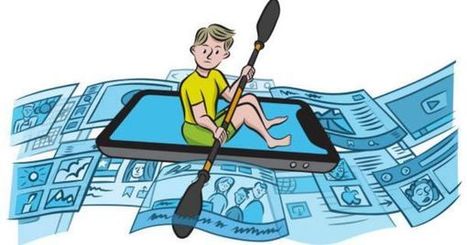Beneath the spread of all “fake news,” misinformation, disinformation, digital falsehoods and foreign influence lies society’s failure to teach its citizenry information literacy: how to think critically about the deluge of information that confronts them in our modern digital age. Instead, society has prioritized speed over accuracy, sharing over reading, commenting over understanding. Children are taught to regurgitate what others tell them and to rely on digital assistants to curate the world rather than learn to navigate the informational landscape on their own. Schools no longer teach source triangulation, conflict arbitration, separating fact from opinion, citation chaining, conducting research or even the basic concept of verification and validation. In short, we’ve stopped teaching society how to think about information, leaving our citizenry adrift in the digital wilderness increasingly saturated with falsehoods without so much as a compass or map to help them find their way to safety. The solution is to teach the world's citizenry the basics of information literacy.
Via John Evans



 Your new post is loading...
Your new post is loading...











